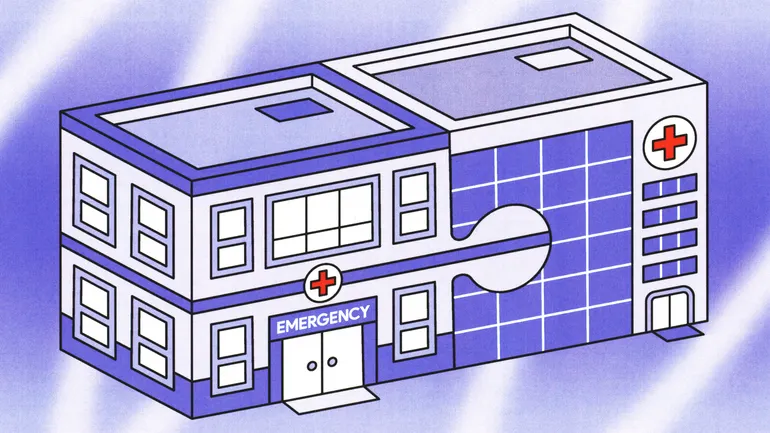Listen to the article
2 min
This audio is auto-generated. Please let us know if you have feedback.
Dive Brief:
- Mergers and acquisitions between hospitals and health systems were down in the second quarter compared to recent years, as impacts from new healthcare policy and trade uncertainty came into focus, according to a report by Kaufman Hall.
- Eight transactions were announced in the second quarter, the lowest in the quarter since at least 2017, according to the healthcare consultancy. About half of the transactions were divestitures.
- Hospital and health system M&A is expected to accelerate, although it “may return at a slower pace than it fell” as the sector absorbs the impacts from federal policy changes, including cuts to Medicaid, the report said.
Dive Insight:
No mega-mergers, or transactions in which the annual revenue of the smaller party exceeds $1 billion, were announced in the second quarter. That pushed the average seller size down to $175 million, “relatively low” compared to recent year-end averages, according to Kaufman Hall.
Other metrics were low, including total transacted revenue in the quarter, which hit $1.4 billion. The metric is the lowest second-quarter result since at least 2017. The next lowest quarter was 2018, which logged $3 billion in transacted revenue across deals.
Second-quarter hospital M&A hits lowest level in years
Hospital and health system transactions announced in Q2, 2017-2025
Still, the number of deals in the second quarter was a modest uptick from the five deals announced in the first quarter, according to Kaufman Hall.
Deal numbers were probably low in the first quarter as market volatility and economic uncertainty from the Trump administration’s new tariffs had a chilling effect on M&A, according to Kaufman Hall. The potential of significant cuts to Medicaid also likely dampened deals.
Those cuts were realized after President Donald Trump signed a reconciliation bill in early July with over $1 trillion cuts in healthcare spending over the next decade. Most of those cuts will be concentrated in Medicaid, with providers bracing for hits to their revenue as the uninsurance rate rises.
That chilling effect has consequently bled through into the first half of the year, according to the consultancy.
“Business challenges and uncertainty about federal and state policies have affected both the divestitures and affiliations we’re seeing in the market,” said Anu Singh, managing director at Kaufman Hall. “Now that some of the policy uncertainty has resolved, we expect providers will refocus their strategy and transformation efforts, which could spark greater activity in future quarters.”

